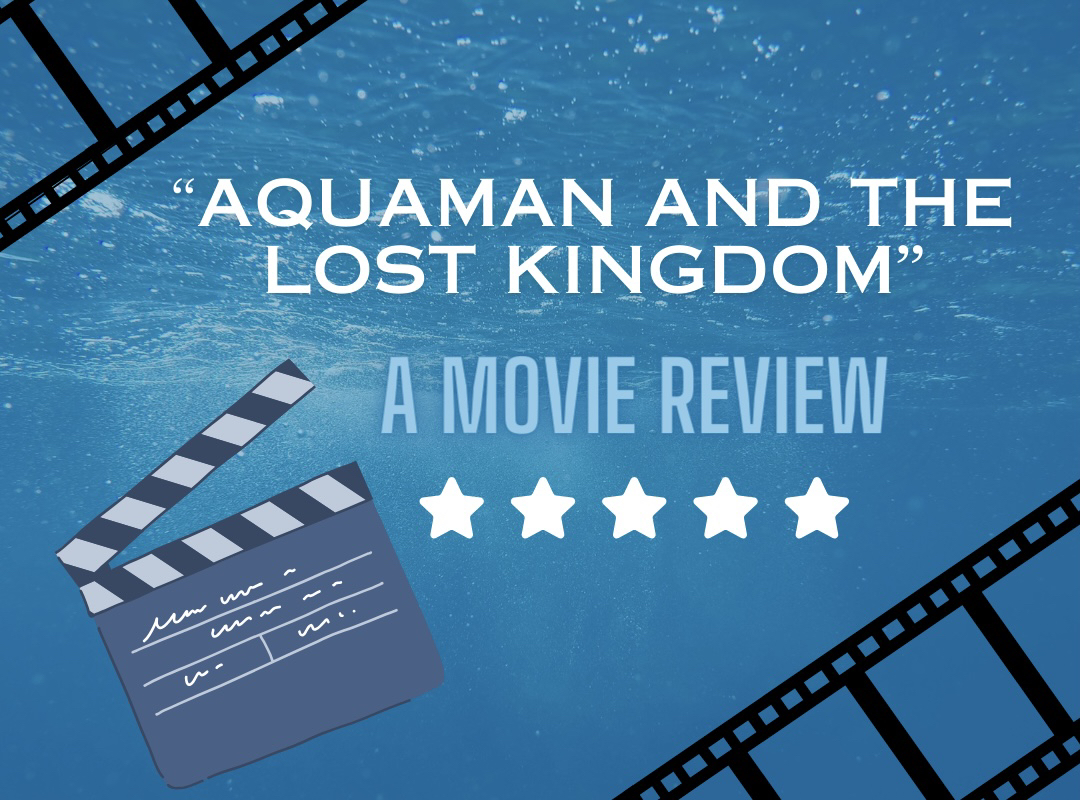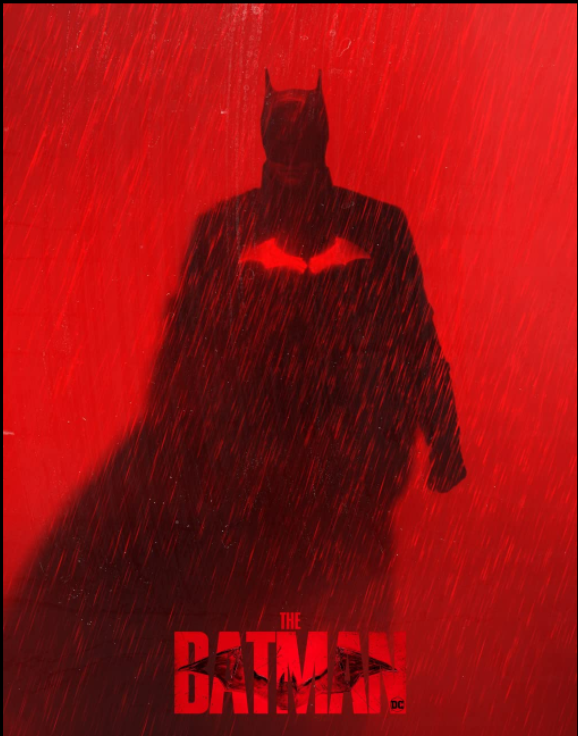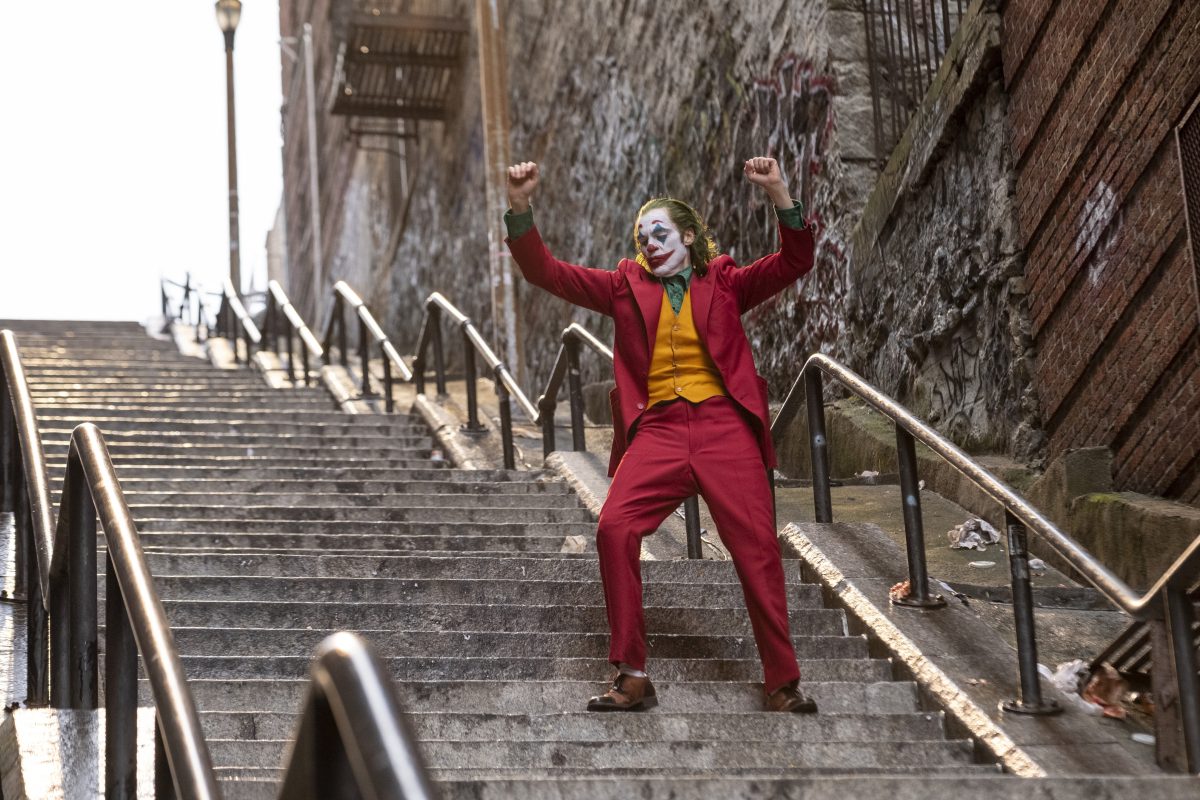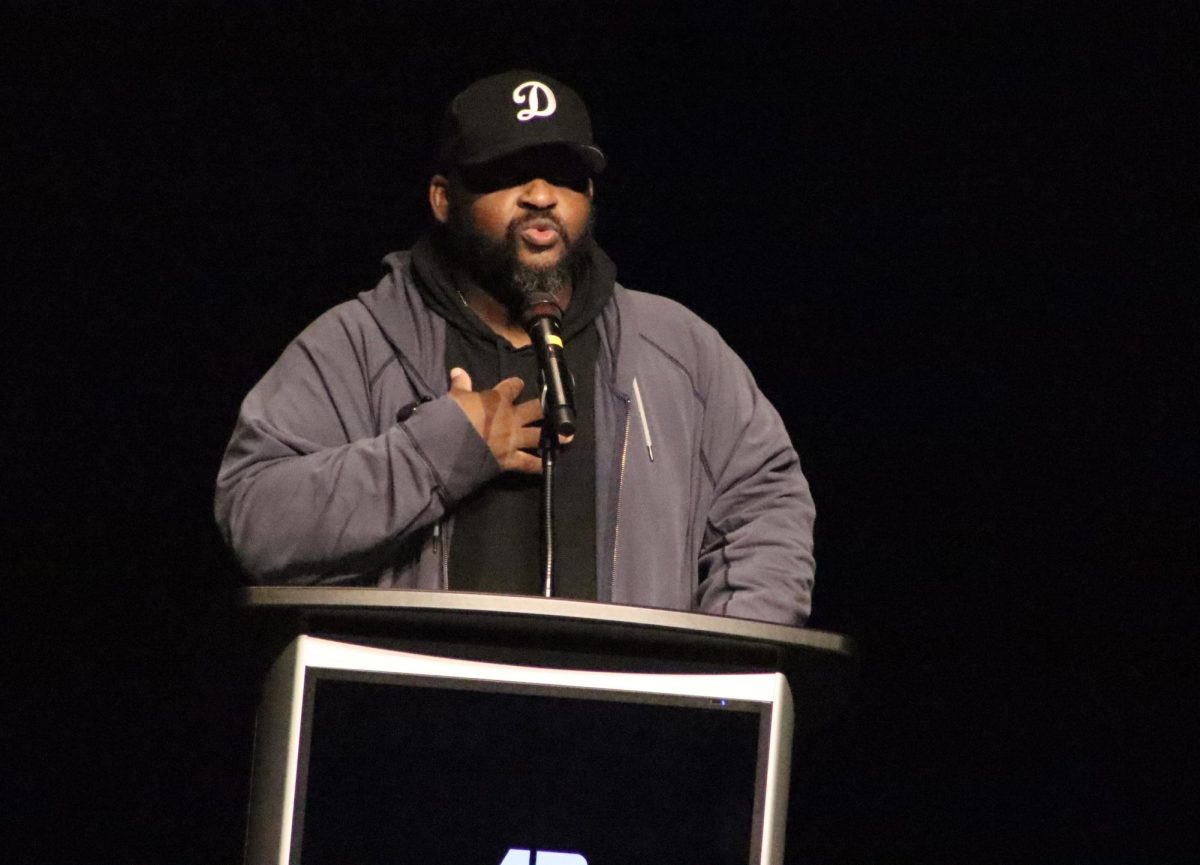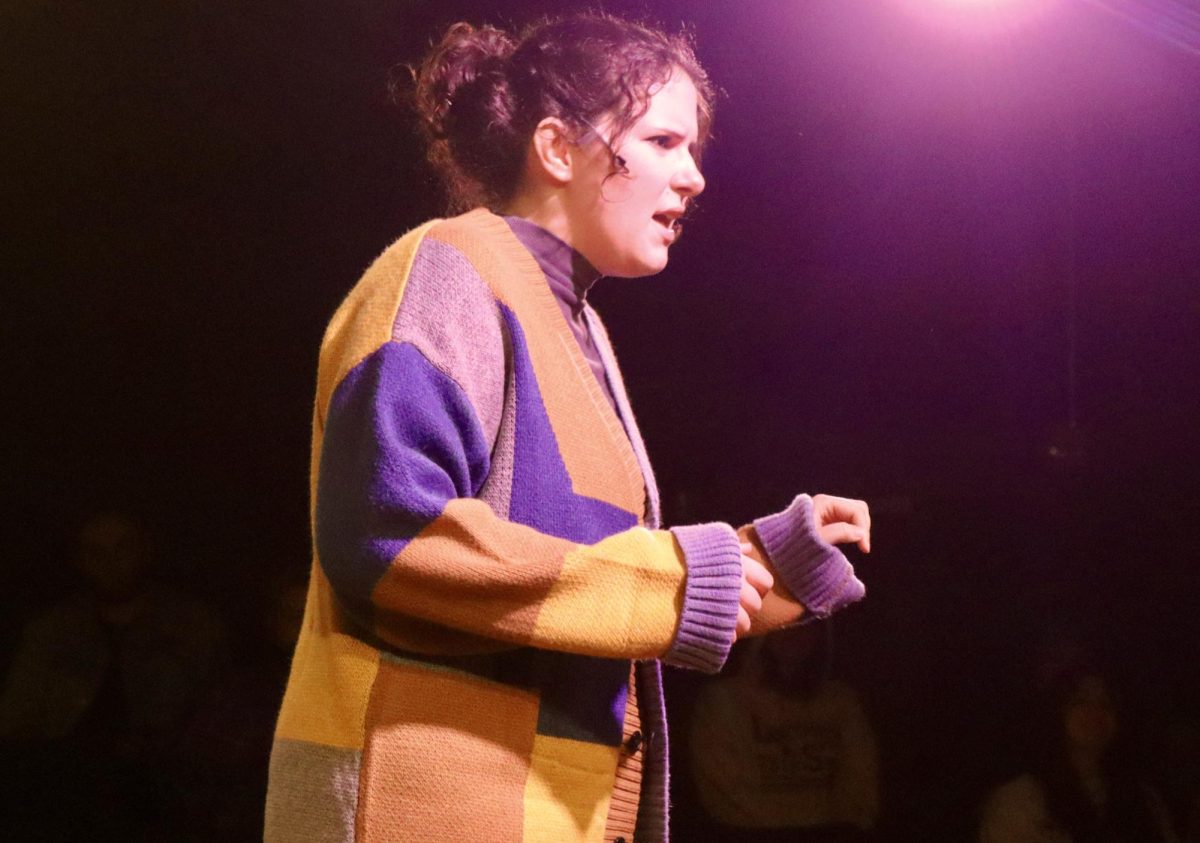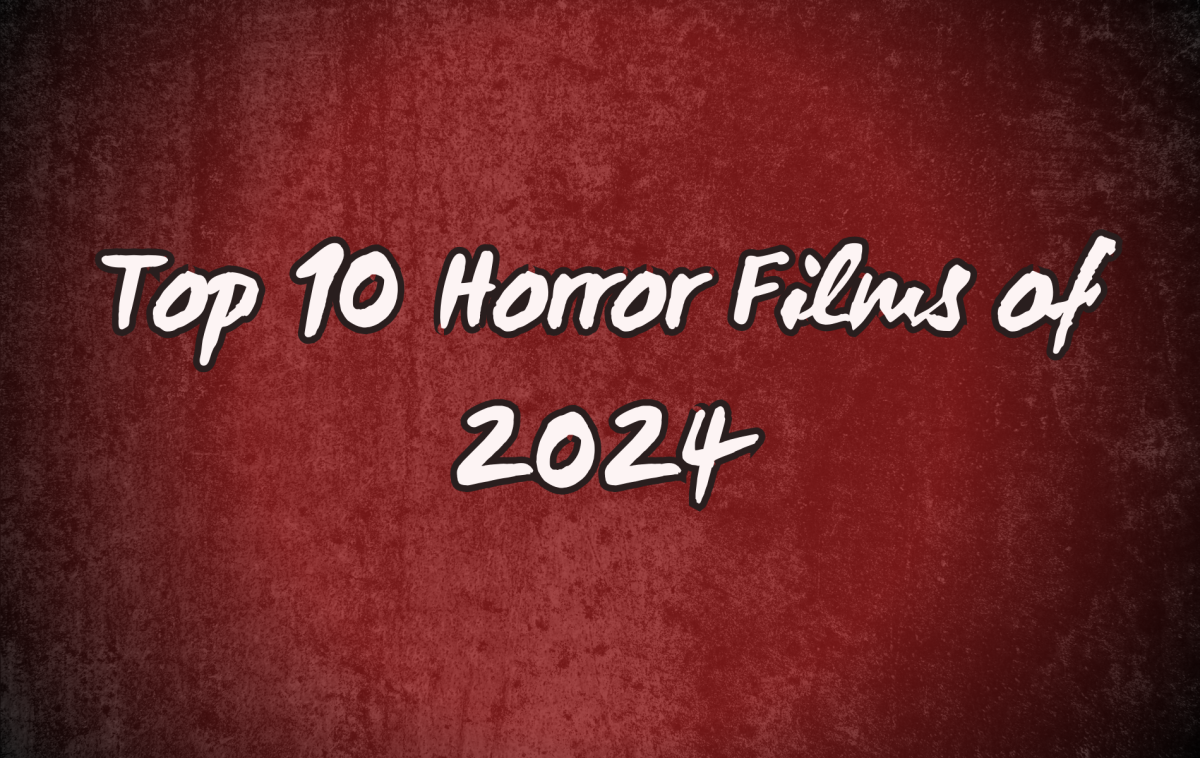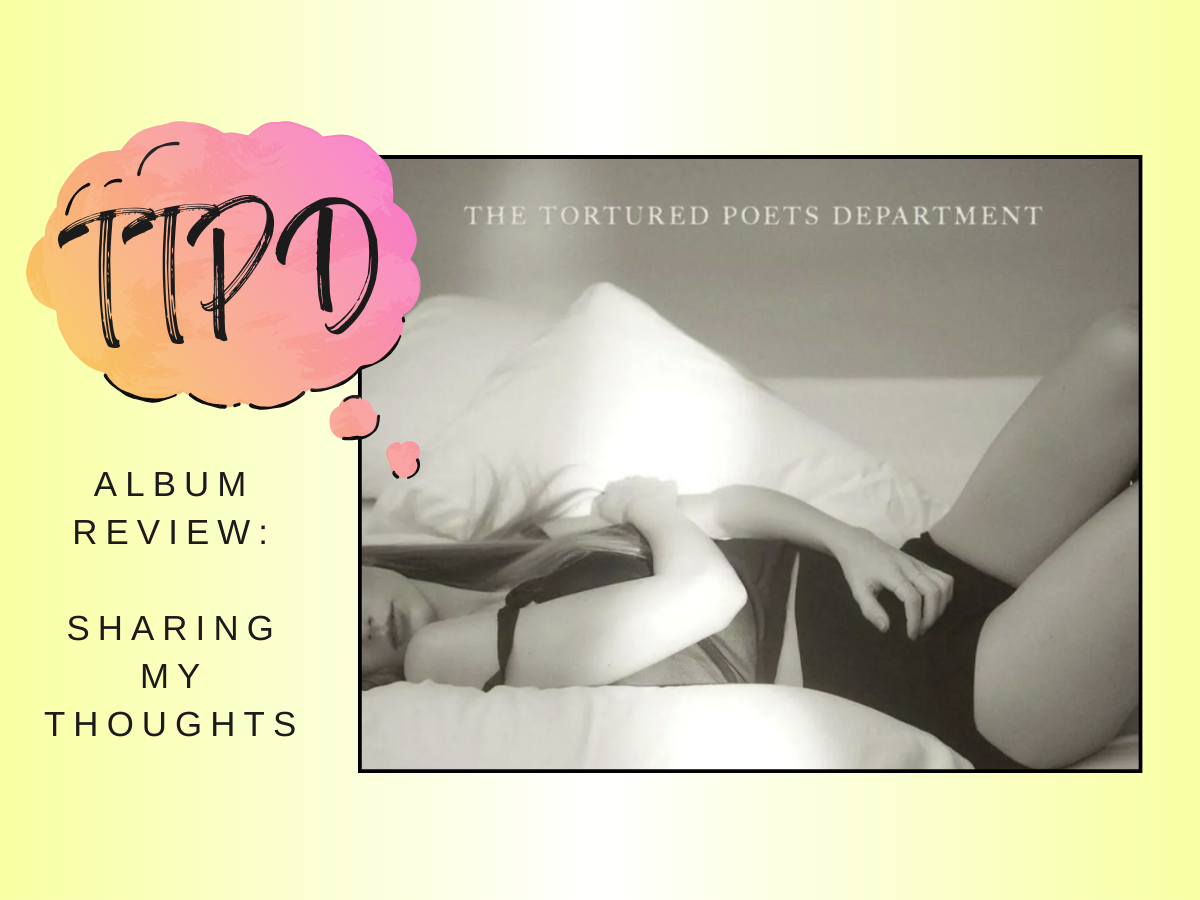Aquaman and the Lost Kingdom is a sequel to Aquaman (2018) and is the final film in the DC Extended Universe. Graphic by Annabelle Coker | THE ALL STATE
‘Aquaman and the Lost Kingdom’ did something few DC Extended Universe (DCEU) films before it could: It was actually pretty good. A shame, considering that it is the final entry in that slate of DC films before James Gunn’s rebooted franchise.
Given the pattern of box office failures from DC in recent years including ‘Black Adam’, ‘Wonder Woman 1984’, ‘Suicide Squad’, ‘The Flash’ and ‘Shazam! Fury of the Gods’, the ‘Aquaman’ sequel had few, if any, expectations riding on it. It could do anything and not squander the franchise any more than its previous entries had already done. Even the previous Aquaman film wasn’t particularly successful commercially.
That being said, most people watch superhero movies for action and epic CGI fights, which were at least present and well shot in most cases for DC aside from ‘The Flash’.
‘Aquaman and the Lost Kingdom’ also delivered on this front. The fight scenes with Arthur Curry (Jason Momoa) and his fellow Atlanteans against Black Manta (Yahya Abdul-Mateen II) and the forces of the titular Lost Kingdom were well-choreographed and fun to watch.
Unlike its counterparts, though, the film also developed its characters well and built on what had been done in the previous Aquaman movie. Immediately we see the lessons Arthur learned from his father, Tom Curry (Temuera Morrison), mother Atlanna (Nicole Kidman) and Nuidis Vulko (Willem Dafoe) as he deals with the struggles of parenthood.
The parenthood side plot, while often played for laughs, was a highlight for the film, as well as the general family dynamics between Momoa’s Arthur and his half brother Ocean Master, played by Patrick Wilson. The two felt like realistic siblings, and the hijinks that occurred between the two were enjoyable to watch. At times, the family side plots felt like a good old-fashioned family comedy. It was a fun breath of fresh air in the superhero genre.
That being said, the biggest problems with the film were both plot-related. As a whole, the plot wasn’t that original. Without majorly spoiling the plot, it felt like a sort of rehashed blend of ‘Marvel Studios’ Black Panther’ and ‘Marvel Studios’ Thor Ragnarok.’ It wasn’t always a bad thing, as it was done well and the new setting differentiated the films, too, but the similarities did feel blatantly obvious at times.
The ending also felt extremely rushed. While Black Manta was the main villain, he was being controlled by a greater evil, which was built up to be a great threat and perhaps a serious problem. It was not. It seemed to be barely an inconvenience, which was disappointing given the buildup and lack of payoff.
Still despite its pitfalls, the cast, chemistry and comedy carried the film to be a satisfying and fairly well-rounded final entry into the DCEU.

